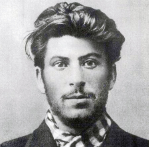|
Lady Militant posted:the USSR was a super power and could project power through over seas bases far outside its borders. it was an empire. and the way i use the term is neutral/descriptive in this context because i think it's loving stupid to come up with a super special leftist name to classify leftist super powers That's a really reductive view of empire and imperialism imo. A big part of empire is the simultaneous extraction of resources while preventing the development of internal productive forces. While the ussr did establish client states it's relationship to those clients was far different to a traditional capitalist empire. Rather they were more akin to America's relationship with western europe. For one, the USSR was mainly concerned with building up productive forces in it's clients in order to make them less dependent on the USSR. A good example is of this is the deal Kruschev made with Castro to trade cuban sugar under market value for soviet heavy machinery. Not out of the goodness of their hearts, but due to the resource disparity between the communist bloc and capitalist bloc. Another notable example being the DDR becoming the 9th largest industrial economy despite having to pay war reparations to the USSR Quite simply the USSR didn't want it's allies getting overthrown by America but also didn't have the resources to cover the entire communist bloc in kgb agents and tanks. Their solution was the building up their clients states productive development so that they could handle issues themselves. This was part of a longer term strategy of breaking capitalist encirclement by creating a self contained communist community (led by the USSR of course) You can see the relative successes of this strategy in the continued control of communist parties in southeast Asia and Cuba. Which were the countries that had benefited most from this policy. Whereas the communist states the USSR didn't sufficiently develop productive forces (Africa, Europe, and mongolia) collapsed with the rest of the bloc. You can call the USSR an ideological hegemon, but no serious historian would call it an empire.
|
|
|
|

|
| # ? May 26, 2024 18:17 |
|
Atrocious Joe posted:just finished up that book of lectures on the Soviet Union by Walter Rodney that Verso put out a few years ago. It mostly discusses the historiography of the revolution, contrasting western Marxist scholars, soviet scholars, and bourgeois scholars. His later sections on soviet development would probably be interesting to people in thread. I'm reading an occasionally insightful and informative "stalin did nothing wrong" polemic by a Belgian communist (believe it's called "Another View of Stalin"), and there are huge chunks devoted to hating the gently caress out of Trotsky, so it would be interesting to get a more balanced view.
|
|
|
|
TLDR: Vietnam was to the Soviet Union as Norway is to America. A client state, but not an integrated part of an empire.
|
|
|
|
croup coughfield posted:I could've been clearer. I'm aware of the weight of history. The original post I read came across to me as implying that we can all simply sit and wait for "history" and its machinations to take its course, that broad organizing and revolution aren't necessary for our liberation, and I do not agree. The US is not a normal country and in fact, I would probably say any liberation would happen here last. In the end, what is necessary and what is possible are two different things.
|
|
|
|
everyone has to remember that there is no such thing as ethical consumption under any model that has ever or will ever exist your vegan meals are made with stolen water by a company that demands nuclear war with any country that could conceivably also grow their primary cash crop, and harvested with slave labor
|
|
|
|
|
Gulping Again posted:everyone has to remember that there is no such thing as ethical consumption under any model that has ever or will ever exist What if someone grows their own food with rainwater?
|
|
|
|
The distortion of the "no ethical consumption" slogan to mean "damage mitigation isn't worth pursuing and aggregated behavioral decisions do not matter at all" is an unfortunate development.
|
|
|
O Yeetus posted:What if someone grows their own food with rainwater? you can grow crops with acid rain?
|
|
|
|
|
Gulping Again posted:everyone has to remember that there is no such thing as ethical consumption under any model that has ever or will ever exist https://www.youtube.com/watch?v=FKZYQ72N0To&t=49s
|
|
|
|
The part where the woman starts crying is really funny because that's what every nihilist fantasizes will happen after they give an edgy monologue
|
|
|
|
GalacticAcid posted:The distortion of the "no ethical consumption" slogan to mean "damage mitigation isn't worth pursuing and aggregated behavioral decisions do not matter at all" is an unfortunate development.
|
|
|
|
It's like the obverse of when someone in the West Wing gives an epic speech and everybody starts clapping
|
|
|
|
Dreddout posted:That's a really reductive view of empire and imperialism imo. A big part of empire is the simultaneous extraction of resources while preventing the development of internal productive forces. While the ussr did establish client states it's relationship to those clients was far different to a traditional capitalist empire. Rather they were more akin to America's relationship with western europe. Also, the Soviet people themselves weren't generally having a much higher standard of living if possibly a lower one that the satellite states in Eastern Europe (especially in the case of the DDR/Czechoslavkia/Hungary) and often there was a two-way street as far as economic and trade went. A bunch of satellite states joined the IMF and GATT as well, I don't think the US would have done the same.
|
|
|
|
Dreddout posted:That's a really reductive view of empire and imperialism imo. A big part of empire is the simultaneous extraction of resources while preventing the development of internal productive forces. While the ussr did establish client states it's relationship to those clients was far different to a traditional capitalist empire. Rather they were more akin to America's relationship with western europe. this is the most concise rebuttal to "Soviet Empire" hypothesis that I've seen that also makes sense, thanks for posting
|
|
|
|
GalacticAcid posted:The distortion of the "no ethical consumption" slogan to mean "damage mitigation isn't worth pursuing and aggregated behavioral decisions do not matter at all" is an unfortunate development.
|
|
|
Dreddout posted:That's a really reductive view of empire and imperialism imo. A big part of empire is the simultaneous extraction of resources while preventing the development of internal productive forces. While the ussr did establish client states it's relationship to those clients was far different to a traditional capitalist empire. Rather they were more akin to America's relationship with western europe. im not a serious historian is the thing. the definition of empire you are using is not the same definition of empire that most people use (which normally just means "big kingdom"). I'm not saying that the USSR was Imperialist or w/e, I'm saying functionally it was an empire even if it didn't fit the definition exactly. Yes the USSR didn't have colonies that it exploited, but that doesn't mean it didn't project power overseas in pursuit of it's interests. Note I don't think that power projection is inherently evil; rather that is a natural occurrence in the modern world where it's easy for us as humans to get around. edit: but I appreciate the explanation! I just don't think the word "hegemon" is as useful because...well it's not a very common word. Lady Militant fucked around with this message at 00:03 on May 21, 2020 |
|
|
|
|
a non-imperialist empire
|
|
|
GalacticAcid posted:The distortion of the "no ethical consumption" slogan to mean "damage mitigation isn't worth pursuing and aggregated behavioral decisions do not matter at all" is an unfortunate development. this very forum has repeatedly established that 'harm reduction' is the same kind of fake idea as 'making hard decisions' you do not get any credit for making the orphan-grinder kill orphans faster and less agonizingly when you are the one who developed and implemented the orphan-grinder and then based everything in society around the orphan-grinder's output of tar-soaked orphan grist
|
|
|
|
|
More like Grasping Again
|
|
|
|
Ardennes posted:The US is not a normal country and in fact, I would probably say any liberation would happen here last. In the end, what is necessary and what is possible are two different things. I'd argue this is just a woke form of american exceptionalism. America is a normal country in the sense that it's similar to all the other settler states currently plaguing the word I could definitely see something along the lines of a Indian or South African style transition happening to America, particularly as whites are becoming an absolute minority, a depression occurs, and the military machine continues to flail at securing it's objectives. At the very least I'd argue America is more vulnerable to radicalism than other first world nations (barring outliers like France) if for no other reason than it's complete refusal to reform it's archaic political system or adopt social democratic measures to mollify class warfare. Give us ten years of an unprecedented depression and it's not hard to imagine a revival of the labor movement on the level that happened in America between the 20's and 30's. Except this time I doubt there will be an FDR figure to save capitalism from itself. We are already seeing this to an extent if the DSAs meteoric increase in membership is any indication. Though I doubt the DSA will be our ultimate deliverance from capitalism, the dramatic increase in identification with the left among the youth is a promising sign. In that sense America is the least stable nation in the global north, but far more stable than any nation in the global south (including former communist states like Russia)
|
|
|
|
I'd also argue that a social democratic isolationist USA is a lot easier to imagine in the near future, and a massive geopolitical improvement for third world struggles.
|
|
|
|
Lady Militant posted:edit: but I appreciate the explanation! I just don't think the word "hegemon" is as useful because...well it's not a very common word. we live in a capitalist society, and the most common words and understandings are going to be those compatible with capitalism. how we talk has to accessible to workers, but sometime we're going to have to use uncommon vocabulary to describe how things really are. hegemon and hegemony have definitely been used in obscure academic contexts i admit. college courses love teaching gramsci without really going into how he was a communist.
|
|
|
|
Dreddout posted:I'd argue this is just a woke form of american exceptionalism. America is a normal country in the sense that it's similar to all the other settler states currently plaguing the word Being a hegemon over humanity and the lynchpin of the West's economic system means the US isn't a normal nation. It doesn't mean it can't fail but the empire is going to make sure that its home provinces are controlled first. The US will keep grinding its gears, but it is only going to be the point when the rest of the empire had long-since collapsed on itself, that the US will finally give up. The DSA only emboldens this process by denying any alternative internationally in exchange for health care. Also, why is the stablity of the US such a good thing in this case? If anything you prove my point that the rest of the world will likely move on as the American Empire collapses on itself.
|
|
|
Atrocious Joe posted:we live in a capitalist society, and the most common words and understandings are going to be those compatible with capitalism. how we talk has to accessible to workers, but sometime we're going to have to use uncommon vocabulary to describe how things really are. Very true
|
|
|
|
|
It does seem that America is far more of a powder keg than the other first world countries but I can't shake off the feeling that fascism is a lot more palatable to their population than even mild social democracy.
|
|
|
|
Gulping Again posted:this very forum has repeatedly established that 'harm reduction' is the same kind of fake idea as 'making hard decisions' Sorry folks. Looks like it's been established, by this very forum no less.
|
|
|
|
i like the belly hamsick on this guy https://twitter.com/redfishstream/status/1263144958254596096
|
|
|
|
Dreddout posted:I'd argue this is just a woke form of american exceptionalism. America is a normal country in the sense that it's similar to all the other settler states currently plaguing the word Currently the tech bros are trying to escape this conundrum. A bunch of them want to go to space where capitalism can continue forever another part is practicing the ancient art of destroying the proletariat as a class, either through propaganda or UBI The true revolutionary moment may arrive when we are all put in chains to be worked to death making prison guard uniforms
|
|
|
|
ToxicAcne posted:It does seem that America is far more of a powder keg than the other first world countries but I can't shake off the feeling that fascism is a lot more palatable to their population than even mild social democracy. well yeah, because america is fascist right now
|
|
|
|
croup coughfield posted:well yeah, because america is fascist right now I think this underrates how bad things can get under ordinary liberal democracy, and it gives a bad strategic orientation, as it suggests the way forward is a broad anti-fascist alliance with liberal forces, when that's the line that's brought us to this point.
|
|
|
|
Pomeroy posted:I think this underrates how bad things can get under ordinary liberal democracy, and it gives a bad strategic orientation, as it suggests the way forward is a broad anti-fascist alliance with liberal forces, when that's the line that's brought us to this point. reading about fascism has provided me with some interesting takeaways fascist variations are rooted in reactionary feudal and prodhounian socialism, where anti-capitalism exists precisely because it created the proletariat as a class, a universal equal united in that they own nothing and must sell pieces of themselves to survive. This rootlessness and commonality of toil erodes national particularity and eventually leads to communism They want a revolution backwards to an idealized feudalism focusing on de-urbanization and farming. privatization is encouraged to combat bureaucratic organization and embed localism and provincialism as policy while race politics come into play it is related to proletarization of nations by foreign imperial finance capital. This means militarization is necessary to combat external enemies for a piece of the imperialism pie industrial labor is detested and relegated to foreign slaves unsurprisingly, all these themes run through every strain of fascism Top City Homo fucked around with this message at 05:29 on May 21, 2020 |
|
|
|
Sheng-Ji Yang posted:moscow was the third rome, so technically the soviet union was true the heir of the roman empire Strong argument for why the Soviet Union was garbage
|
|
|
|
Ferrinus posted:i'm skeptical of the idea of a "state class". like it's absolutely true that the big internal danger for any socialist state is that the actual state machinery is necessarily going to be manned by (at least aspirational) members of the petit-bourgeoise and intelligentsia and that those people have a class interest in living under a bourgeois state rather than a worker's state. why would i want to be the commissar of the khyrgiz SSR, with my concrete but relatively meager privileges, when instead i could sit on the board of a kyrgyzstani oil firm? but i don't think it makes sense to treat this state machinery as a third team in an FFA as opposed to the dagger that two people are on the ground wrestling over Well, what Marx did was follow the progression from ancient Greece to modern Europe: disintegrated systems with weak centers of power apart from the Roman empire and mercantilist absolute monarchy onward. Ancient Greece was what it was because of a failure to construct a proper ancient empire, and feudalism was what it was because the Western Roman Empire was destroyed and Europeans were barbarians relative to Near Eastern people. Lacking the material conditions to build a proper State, any prospective state class that existed couldn't actually become a class that played a huge part in history, and so they don't make a big appearance in orthodox marxism. But you only need to imagine what things would have looked like if the Catholic Church could have united the warring semi-barbarians under a collective system. But take a look at what was shunted off as the "Asiatic mode of production". That proposed mode contains the real developed empires of their time. Those stayed consistently ahead of Europe until the end times of feudalism, at which point you could say that actually the Europeans were becoming Asiatic: highly developed tributary economies that were increasingly able to replace crude and inflexible serfdom with more advanced bureaucratic systems of extracting surplus. What set Europe apart was not that it was more advanced, it's that it was less advanced: prospective capitalists were able to contest political power rather than being repeatedly stamped down by unassailable bureaucrats that would take their wealth and push them back into obscurity. Russia was also an interesting case where the development of capital came late enough that the development of the state bureaucracy was already well ahead of it. The aristocracy could defend itself against the bourgeoisie in a way pretty unlike what had been possible in Europe at a time when capital had been similarly developed there. It just couldn't defend itself against incompetence in its own ranks. Continuing with Russia, the reason some call it feudal in 1917 was that it was still an absolute monarchy, so the bourgeoisie was in no way the ruling class yet. It was very obviously ruled by a "third team". But the Russian ruling class weren't simple individual feudal landlords anymore either, they had largely organized into a collective "asiatic" landlord in the style of China before it started disintegrating into warlordism. A State ruled by an organized and self-aware class separate from all the productive classes. The bureaucracy that the Bolsheviks inherited was neither politically inert nor disorganized, it was concretely far more used to ruling than anyone else in the country, and wanted to rule. The whole cast hosed up when they stayed true to orthodox marxism and treated their developing bureaucracy as a basically inert nuisance, when really it was they themselves who were the political amateurs by comparison and could not afford to underestimate that kind of opponent. The "third team" is not a productive class so it's different under every mode of production. Once remnants of the tributary peasant economy are gone as an economic basis of power, it has to reorient itself toward capitalism. For example, the transformation of the British aristocratic lord into a capitalist landlord and the Prussian aristocratic lord into a state-backed monopoly capitalist. But in a country like the USSR or China, orienting a State toward capitalism looks different because of the different material conditions. Of course the bureaucrats would like to personally become billionaires who own everything, but they can't because they're collectivized and the millions of them understand that they can't all become billionaires. Their personal quality of life depends on preventing others from defecting into private capitalists. For instance, Xi Jinping represents the state monopoly bourgeoisie against the private monopoly bourgeoisie. The bourgeois state of Xi Jinping has no use for liberalism because it's the state of a collectively organized bourgeoisie and liberalism is only required for a disorganized private bourgeoisie to coordinate effectively. There are huge state bourgeoisies in all advanced countries, the difference is mostly that there, the private bourgeoisie came first and prevented the state bourgeoisie from building a self-sufficient system that would enable it to run a working economy by itself and defend itself against capital strikes and so on.
|
|
|
|
It's interesting how that analysis could apply to Spain as well. Bookchin argues that because the industrial heartland of Spain was in the political periphery (in Catalonia), the landowning classes remained more entrenched and the bourgeoisie remained less politically powerful than elsewhere in Europe.
|
|
|
|
GalacticAcid posted:The distortion of the "no ethical consumption" slogan to mean "damage mitigation isn't worth pursuing and aggregated behavioral decisions do not matter at all" is an unfortunate development.
|
|
|
|
uncop posted:Well, what Marx did was follow the progression from ancient Greece to modern Europe: disintegrated systems with weak centers of power apart from the Roman empire and mercantilist absolute monarchy onward. Ancient Greece was what it was because of a failure to construct a proper ancient empire, and feudalism was what it was because the Western Roman Empire was destroyed and Europeans were barbarians relative to Near Eastern people. Lacking the material conditions to build a proper State, any prospective state class that existed couldn't actually become a class that played a huge part in history, and so they don't make a big appearance in orthodox marxism. But you only need to imagine what things would have looked like if the Catholic Church could have united the warring semi-barbarians under a collective system. the third team/class in russia was the aristocracy, as you say, but i don't buy that their increased interdependence and organization turned them from the noble/aristocrat class into the "state" class - it's not like pre-capitalist feudal elites were particularly connected to the mode of production except in that they subjected the working class to a barely-disguised protection racket. you're right that by default soviet bureaucrats were too numerous and too tied together to simply toss socialism over their shoulders and get rich, but that i think shows that "underestimating" the bureaucracy wasn't some decisive fuckup on the soviets' part - their administrators were able to defect and loot the country because it had already started to disintegrate from successive regimes of liberalization and other revisionism it definitely makes sense to draw distinctions between strong and weak states - i think china vs. the us is a really instructive example in this regard, because one of the crucial functions of any state in which the capitalist mode of production is ongoing is to prevent the capitalists from making GBS threads where they eat, and the us just can't seem to manage this any more - but i read the phrase "weak state" in the same way that i would read the phrase "weak triceps" or whatever. it's a deficiency in the capitalists that makes them more vulnerable in the long run (or, like in your example, a deficiency in the european aristocrats that made them vulnerable TO the capitalists). it certainly manifests as divisions in priorities and strategy between individual, competing humans, but on the macro level it's a problem FOR a class, not a fight BETWEEN classes
|
|
|
|
ToxicAcne posted:It does seem that America is far more of a powder keg than the other first world countries but I can't shake off the feeling that fascism is a lot more palatable to their population than even mild social democracy. Fascism is less likely than a standard american military junta, of the kind we have been establishing in latin america since teddy. Mainly due to the general tendencies of an american presidential system in comparison to a european parliamentary system. You are however conflating the american electorate with the american population. Over half the people in this country don't vote, the vast majority of that half are non-white and working class. Polling of this group reveals them to largely agree with sanders platform. (Even the majority of registered republicans agree with single payer as long as you don't call it Medicare for all) I think it's hard for foreigners to understand that the Americans they hear from are not at all representative of the population. The two parties combined form a slim minority of the population. The majority of Americans are checked out of politics, but that apathy can only last so long when food and water grow scarce. A population that doesn't have their basic needs met has a tendency to radicalize faster than observers can predict.
|
|
|
|
Dreddout posted:that apathy can only last so long when food and water grow scarce. A population that doesn't have their basic needs met has a tendency to radicalize faster than observers can predict. keeping most people fed and watered does tend to be the bare minimum that both parties commit to here. unfortunately I think it will take a lot more capitalist collapse for this to really start hitting the radicalization button. I'm definitely a pessimist about revolution in the first world, given the relatively immense amounts of cheap mind-altering comfort afforded to 90% of the population here.
|
|
|
|
What makes France so different? The population there seems to be uniquely militant compared to the rest of the first world. For that matter, the population in Quebec here in Canada seems to be more militant than Anglos, so maybe it's cultural?
|
|
|
|

|
| # ? May 26, 2024 18:17 |
|
Top City Homo posted:reading about fascism has provided me with some interesting takeaways These do tend to be ideological features of Fascism but I would argue Dimitrov's definition remains the most useful: Dimitrov posted:Comrades, fascism in power was correctly described by the Thirteenth Plenum of the Executive Committee of the Communist International as the open terrorist dictatorship of the most reactionary, most chauvinistic and most imperialist elements of finance capital. https://www.marxists.org/reference/archive/dimitrov/works/1935/08_02.htm
|
|
|





















